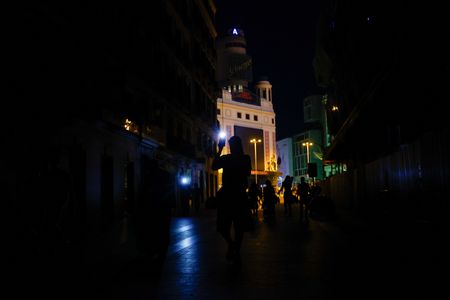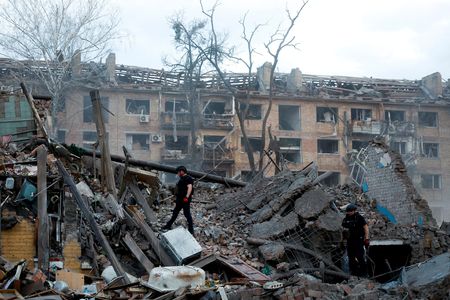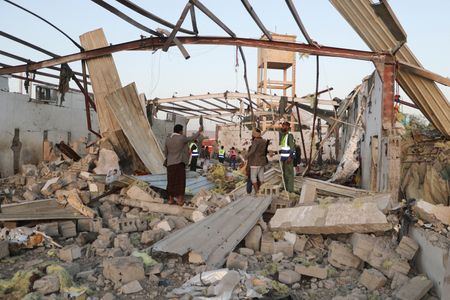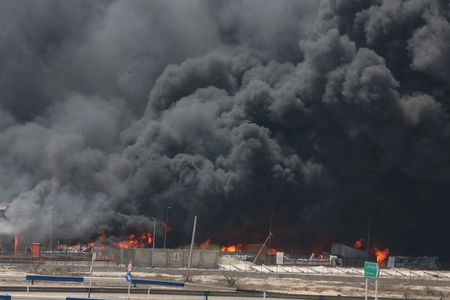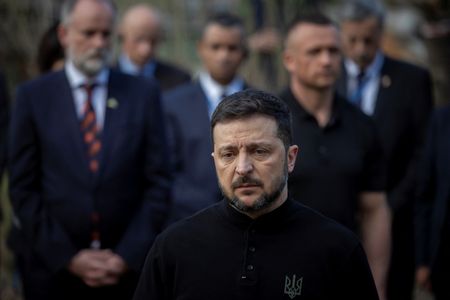MADRID/LISBON (Reuters) -Power started returning to parts of the Iberian peninsula late on Monday after a huge outage brought parts of Spain and Portugal to a standstill, grounding planes, halting public transport, and forcing some hospitals to suspend routine operations.
Spain’s Interior Ministry declared a national emergency and governments from the two countries convened emergency cabinet meetings as officials tried to find out what caused the mass blackout, which began around 1033 GMT. Outages on such a scale are extremely rare in Europe.
Officials said the reasons for the blackout were unclear, with Portugal’s Prime Minister Luis Montenegro saying there was “no indication” a cyberattack was the cause.
In Spain, power started returning to the Basque country and Barcelona areas in the early afternoon, and to parts of capital Madrid on Monday night.
Power was also gradually returning to various municipalities in Portugal late on Monday, including Lisbon city centre.
“We do not yet have conclusive information on the reasons for this (power) cut,” Spanish Prime Minister Pedro Sanchez said in a national address, adding that there had been no signs of any security issues.
Spain’s Interior Ministry said a national emergency would be declared in regions that requested it. Madrid, Andalusia and Extremadura have asked for the central government to take over public order and other functions.
In Portugal, electricity distributor REN said it had restored production at a hydroelectric and thermoelectric plant, and was prioritising supply resumption to hospitals and transport.
It was possible the blackout had been caused by a “very large oscillation in electrical voltage, first in the Spanish system, which then spread to the Portuguese system”, REN board member Joao Conceicao told reporters.
Hospitals in Madrid and Catalonia in Spain suspended all routine medical work but were still attending to critical patients, using backup generators.
Several Spanish oil refineries were shut down and some retail businesses closed in both countries, including grocery chain Lidl and furniture giant IKEA.
Portuguese police said traffic lights were affected across the country and the metro was closed in Lisbon and Porto, while trains were cancelled in both countries.
“I just don’t know who to turn to. My daughter in Barcelona is giving birth. We’re going to miss the connection to get there,” said Angeles Alvarez, stranded outside Madrid’s Atocha railway station.
Images from a Madrid supermarket showed long queues at tills and empty shelves as people rushed to stock up on staples.
The Bank of Spain said electronic banking was functioning “adequately” on backup systems, though residents also reported ATM screens had gone blank.
Parts of France also suffered a brief outage. RTE, the French grid operator, said it had moved to supplement power to some parts of northern Spain after the outage hit.
GRIDLOCK
Spanish radio stations said part of the Madrid underground had been evacuated, and play at the Madrid Open tennis tournament was suspended.
There were traffic jams in Madrid city centre as traffic lights stopped working, with people in reflective vests standing at intersections to direct traffic.
Hundreds of people stood outside office buildings on Madrid’s streets and there was a heavy police presence around key buildings, according to a Reuters witness.
Local radio reported people trapped in stalled metro cars and elevators.
Portugal’s airport operator ANA said it did not expect flights to be able to take off from Lisbon until 10 p.m. local time, with limited operations at Porto and Faro airports.
Such widespread outages are unusual in Europe. In 2003 a problem with a hydroelectric power line between Italy and Switzerland caused a major outage across the whole Italian peninsula for around 12 hours.
In 2006, an overloaded power network in Germany caused electricity cuts across parts of Europe and as far as Morocco.
About 43% of Spain’s energy comes from wind and solar power, with nuclear accounting for a further 20% and fossil fuels 23%, according to energy think tank Ember.
(Reporting by Emma Pinedo, Jesus Aguado, Andrei Khalip, Catarina Demony, Aislinn Laing, Dominique Patton, Inti Landauro and David Latona; Writing by Nina Chestney and Michele Kambas; Editing by Andrei Khalip, Timothy Heritage and Rosalba O’Brien)







